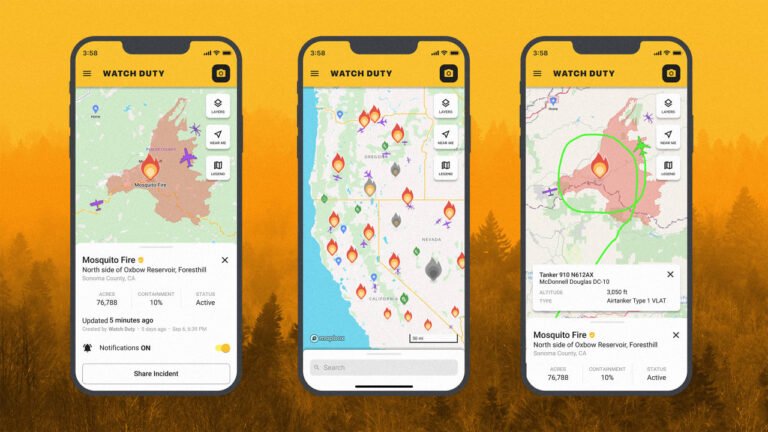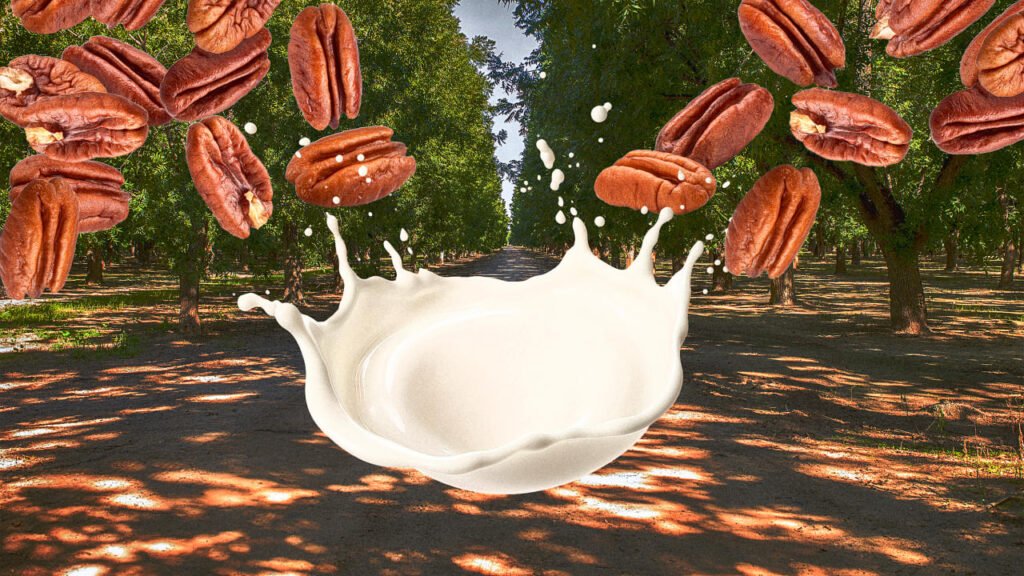
At a conference in 2019, Laura Shenkar buttonholed Greg Steltenpohl—the founder of Odwalla and then-CEO of Califia Farms—to offer the juice and alt-milk pioneer a few sustainability tips.
“I was like, ‘There are a lot of things you need to do to get Califia to be truly environmentally sensitive,’” recalls Shenkar, an environmental business strategist at the time, laughing now at the flex. “And he said, ‘Yes, that’s true. This company can’t do what you’re describing. You’d need to start a company from the ground up.’” It was a gargantuan task, he warned—one that would require designing the business at every step with a team that “thinks differently,” not the usual corporate CPG types.
Viewing that as a challenge, Shenkar launched PKN, a pecan milk brand, two years later in an attempt to tap into the alternative milk market. Califia and others had been mostly focused on oats and almonds. Almonds are a notoriously thirsty nut, with the highest water footprint of all major California crops. Shenkar had become fixated on pecans, instead.
Pecans are nutritious, packed with vitamins A, B, and E, omega-3s, and impressive amounts of manganese, zinc, and copper. They boast the highest antioxidant content of any tree nut. They’re wind-pollinated, so they don’t rely on bees trucked across the country like almonds do. And they’re native to the United States—America’s only major indigenous tree nut, growing naturally in places like Georgia, Texas, and New Mexico, where they’ve thrived without needing ecological intervention.
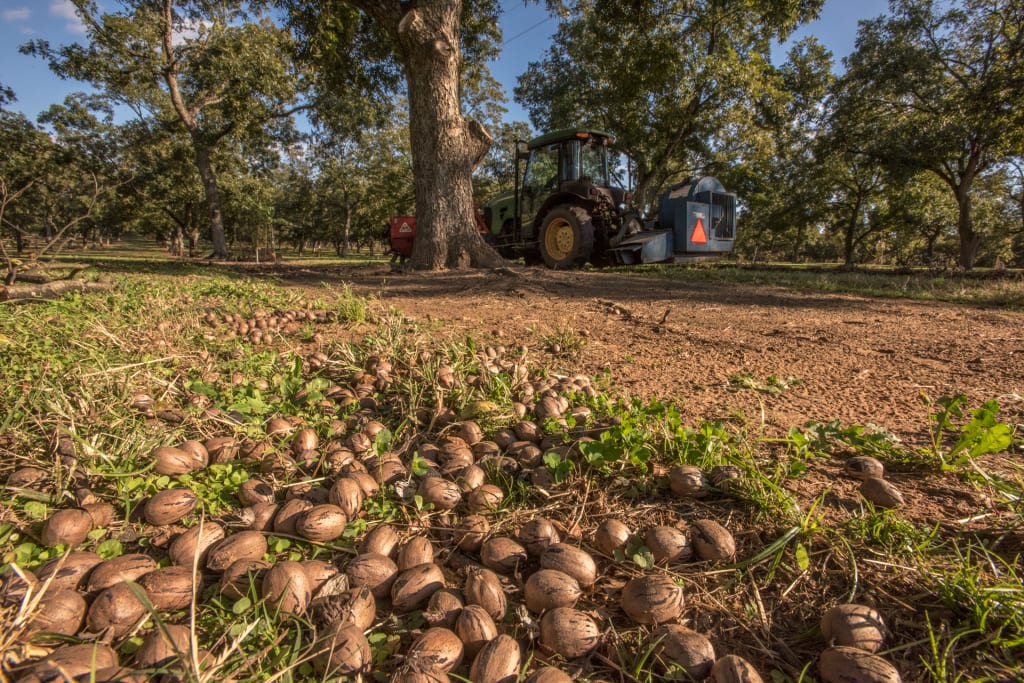
They’re also drought-tolerant, something Shenkar was primed to appreciate after having spent years thinking about water preservation. In the early 2000s, she founded Artemis Water Strategy, a consulting firm that helped governments and corporations such as Intel, IBM, Walmart, and Bain & Company implement advanced water-management technologies. She designed the pilot that helped Walmart cut water use by 30% at 2,000 stores and coauthored a paper that influenced California’s drought response.
Later, the Nature Conservancy’s impact investment arm, NatureVest, hired her to study a drought-prone stretch of the Texas Colorado River outside Austin. She concluded that one major problem was alfalfa—a high-water-use crop grown for animal feed that’s become a bane of the entire Southwest—and that the solution was to plant native species in its place. “They’re additive rather than depletive of the environment,” she says. “You don’t have to import water from 200 miles away. You use the water that’s falling from the sky.”
That very stretch of the Colorado River is also home to San Saba, known as the pecan capital of the world. But Shenkar noticed that local farmers were leaving the pecan business. The market, they said, was fragmented and difficult. While their best nut pieces—USDA “Fancy”-grade halves—fetched higher prices than other nuts, the darker, nutritionally identical “Choice” pieces had few buyers and often got sold for animal feed at a loss. What if, she wondered, someone used those pieces to make milk?
“The idea was to upcycle pecans to create a new revenue stream for farmers, to fund their transition into regenerative and organic production,” she says. She knew it would take capital and technology. But to her, it was clear: “Pecans, and not alfalfa, are the future for at least that part of Texas.”
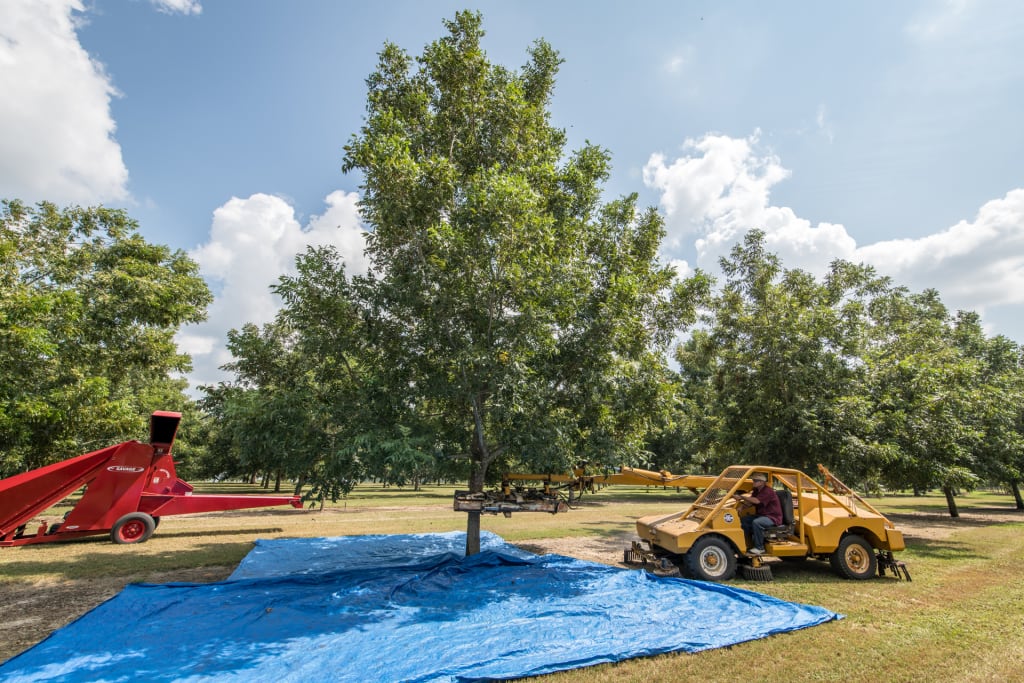
Pecan milk vs. almond, soy, and oat milk
Today, plant-based alternatives often claim more supermarket shelf space than traditional dairy. Industry forecasts suggest the market is still heating up. Currently valued at $20 billion—larger than telehealth or pizza delivery—it is predicted to double globally by 2030, reaching more than $40 billion.
However, as the category evolves, it’s not almond, soy, and oat that are posting strong growth. The legacy alternatives are now joined by milks made from every conceivable nut, seed, grain, and bean. There are now barley, potato, corn, and water-lentil milks. A brand calling itself MILKish sells half-gallons of watermelon seed milk for $10. Oatly’s investors have backed Quiny, a quinoa milk.
Yet just because a plant can be milked doesn’t mean it should be. Almond milk still accounts for more than half of all category sales, according to the Plant Based Foods Association and Good Food Institute’s 2024 market overview, which is based on SPINS data. Almond milk benefits from having a mild flavor and a well-documented health halo, thanks in part to prolific research funded by the Almond Board of California. But California’s almonds require an average of 3.2 gallons of total water per nut, according to one frequently cited 2019 study. And the state’s groundwater supplies—particularly in heavy almond-producing regions like Joaquin and Sacramento counties—are worryingly overdrawn. These two counties alone produce roughly 80% of the world’s almonds.
If the plant-milk market does double by 2030, California almond growers won’t be able to double their output to keep pace. If anything, production is slipping: Almond acreage fell by 40,000 last year, a 3% drop and the third consecutive year of decline.
Soy milk, meanwhile, may be affordable and high in protein. But soybeans are more than overplanted; the vast monocultures in which they’re grown contribute to deforestation and hasten biodiversity loss. Oat milk is beloved for its creamy texture, but that texture often comes courtesy of canola or other vegetable seed oils—sometimes in quantities comparable to what you’d get in a small order of fries. Cow’s milk, of course, produces the highest greenhouse gas emissions of all, and increasingly comes from dairies modeled on industrial factories.
And then there are pecans: nutritious, sustainable, and native to the United States.
The nut was a dietary staple for Native Americans living in the “Pecan Belt” region spanning from Georgia to New Mexico and down into Mexico. In the 16th century, the Algonquians were preparing a creamy pecan liquid called powcohicora—potentially America’s very first plant-based milk! Colonists quickly adopted the practice.
By the 18th century, George Washington was growing pecan trees at Mount Vernon, and Thomas Jefferson was so enamored that he demanded James Madison send him boxfuls in Europe “as fresh as possible, packed in sand.” By 1920, U.S. production had topped two million pounds. Today, the country produces nearly 300 million pounds, more than four-fifths of the world’s supply. This still pales in comparison even to other nuts: America’s pecan crop is valued at roughly $500 million annually. Last year, California produced almost three billion pounds of almonds worth over $4 billion, or eight times more. Yet Shenkar believes that pecan milk could capture 20–30% of the alt milk market by 2030.
Chris Harrell, CEO of Southern Roots—a $150 million grower-owned pecan cooperative—would be pleased. He explains that pecan economics are a little, well, nutty. “Pecans are expensive because they taste better, and if you’re a health nut they check all the boxes,” he says. “But you won’t see a lot of investment going into pecans,” because the margins are much thinner than on almonds, or even walnuts. “I sit on four different industry boards,” Harrell adds, “and I spend a good portion of every day discussing how we can generate more demand so we’re not selling the ‘Choice’ pieces at a loss, and we can bring down the price point for consumers.”
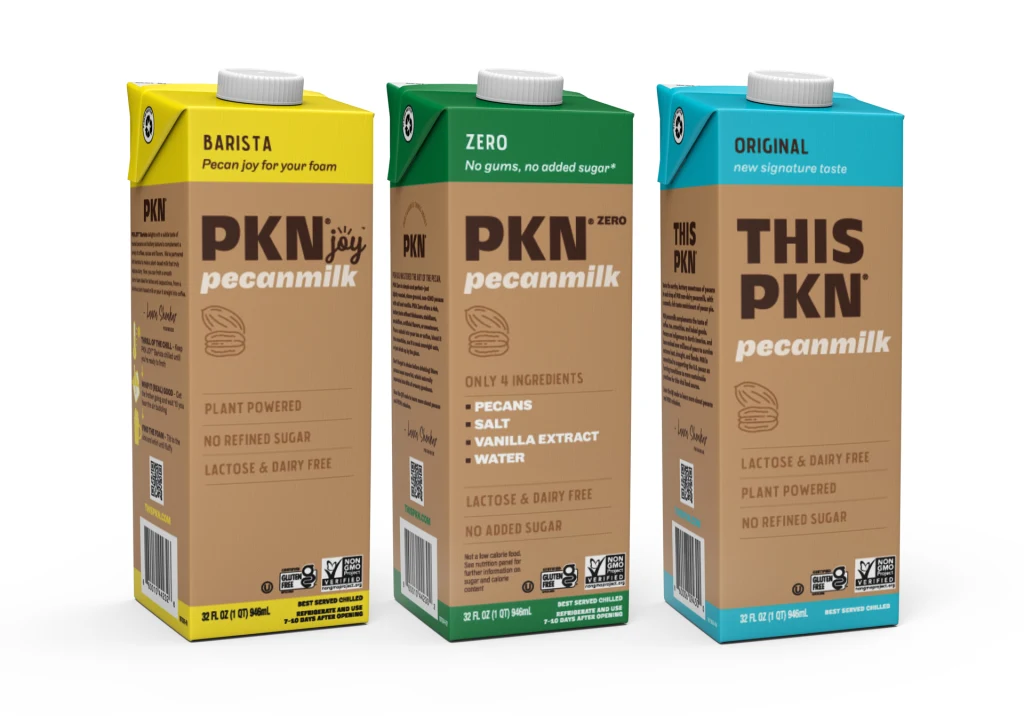
Reaching the grocery chains—and across the ideological divide
PKN sources its pecans from San Saba, where farmers harvest from trees said to be more than 200 years old. The company currently offers six products, from a basic, four-ingredient milk containing just pecans, water, vanilla extract, and salt, to sweetened options like chocolate, several different creamers, and a version for baristas. They’re sold online (through PKN’s site, Amazon, and Walmart) and at about 500 stores across 31 states, including Albertsons, Sprouts, Erewhon, and Central Market. A 32-ounce carton costs around $6, a dollar more than Oatly.
PKN has only two competitors. One, a Georgia-based brand called Treenhouse Naturals, makes canned pecan drinks that recently earned a spot in Garden & Gun’s annual “Made in the South” awards. The other, Pecana, launched in 2023 and has begun infiltrating grocery chains including Whole Foods and H-E-B—it can currently be found in nearly 300 stores. Pecana also sources from San Saba, Texas, and is owned by the Chase family, heirs to the Mack Energy Corporation fortune in New Mexico.
That the top two brands are run by such different people—Shenkar, a self-described “tree hugger” who engages with outlets like VegNews and Green Queen, and a family that made billions in the Permian Basin oilfields—shows that pecan milk has a refreshingly broad appeal that is missing from other plant-based alternatives.
Like it or not, food choices have become political. Our milk preferences maybe most of all: Conservatives have long mocked urban progressives’ supposed love of sipping not just lattes, but soy lattes. MAHA’s recent rise, meanwhile, has inspired liberals to declare raw milk—something Robert F. Kennedy Jr. just took shots of at the White House—the preferred beverage of science deniers.
Pecan milk might just sidestep the culture wars entirely. The sharpest divide over this product seems to be about pronunciation: Many Southerners (and apparently Martha Stewart) go with puh-CAWN. Northerners lean toward pee-CAN, as evidenced by Billy Crystal and Meg Ryan’s famous When Harry Met Sally scene. The truly deranged say PEE-CAWN.
Whatever gets people to buy into sustainability is fine with Shenkar. “We can address a lot of things with pecan milk if it tastes good enough,” she says. She’s been excited to discover that, with pecans, patriotism and environmentalism can be sides of the same coin. “There’s a provenance thing here,” she notes, “which is directly tied to the environmental impact.”
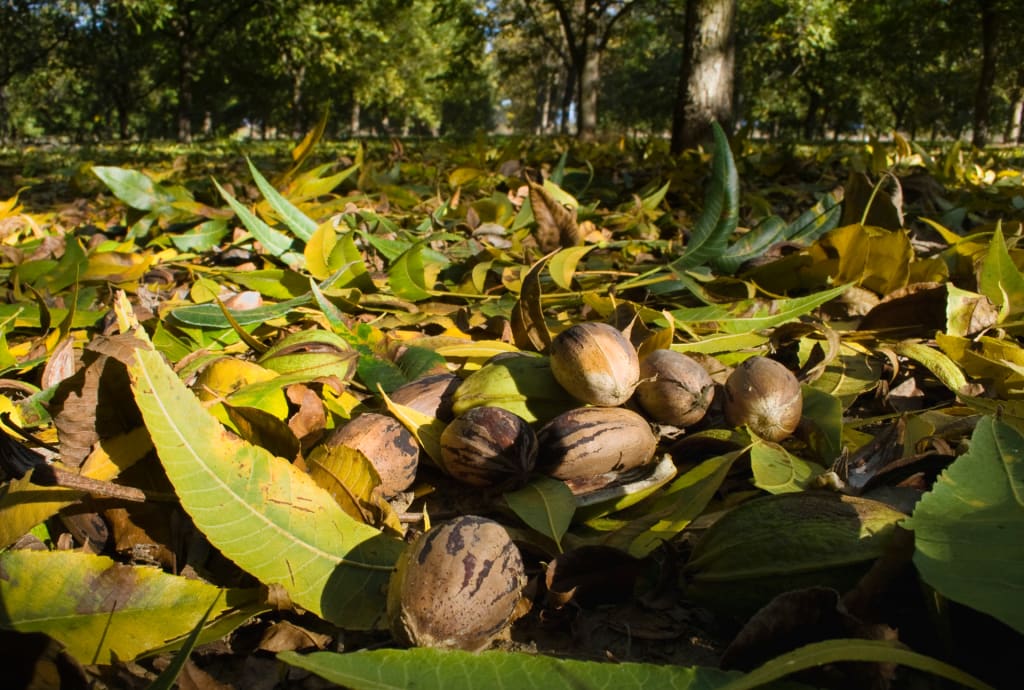
Selling the “supernut”
Now it’s up to the industry—and companies like PKN—to get the word out. Matthew Bailey, a Georgia-based pecan executive who publishes the Pecan Report, says pecans once “conjured images of holiday pies and traditional Southern treats. But the pecan industry is working to change that image.”
Last August, eight years after the American Pecan Council formed, Snickers rereleased a previously limited-edition, Texas-only pecan bar, this time nationwide. Southern Roots’s Harrell says Dave & Buster’s is about to debut a pecan-encrusted chicken dish. The pecan council, meanwhile, has since launched a national consumer campaign under the banner “American Pecans, the Original Supernut,” modeled on successful industry promotion slogans like “Beef, It’s What’s for Dinner” and “Pork, the Other White Meat.”
Pecan milk’s profile is also growing. It’s a good time to be in the not-almond, not-oat, not-soy milk business: All three lost ground last year, with sales down 7.4%, 1.8%, and 3.5% respectively, according to NielsenIQ. The lactose-free market continues to expand anyway. More than a third of Americans say that dairy gives them digestive trouble. Yet plant-based milk’s market penetration hovers around 17%, and 6 in 10 Americans say they don’t like how it tastes. PKN’s store count, fittingly, keeps climbing: Its products debuted on Target’s milk aisle in June.
“There’s a lot of stuff we’re looking at doing with our marketing dollars,” Harrell says. “But pecan milk was one of the first.” He adds: “Laura’s been very instrumental in leading that charge.”
Shenkar is now looking to set even higher sustainability goals for PKN, looking for ways to shrink the physical distance involved in manufacturing and distributing the products. She believes that would further deepen pecan milk’s connection to place. “We’re a ways off, but I’d like to make an Arkansan pecan milk—does Arkansan pecan milk taste different than Texan pecan milk?” she asks. “Wouldn’t you like to know?”

